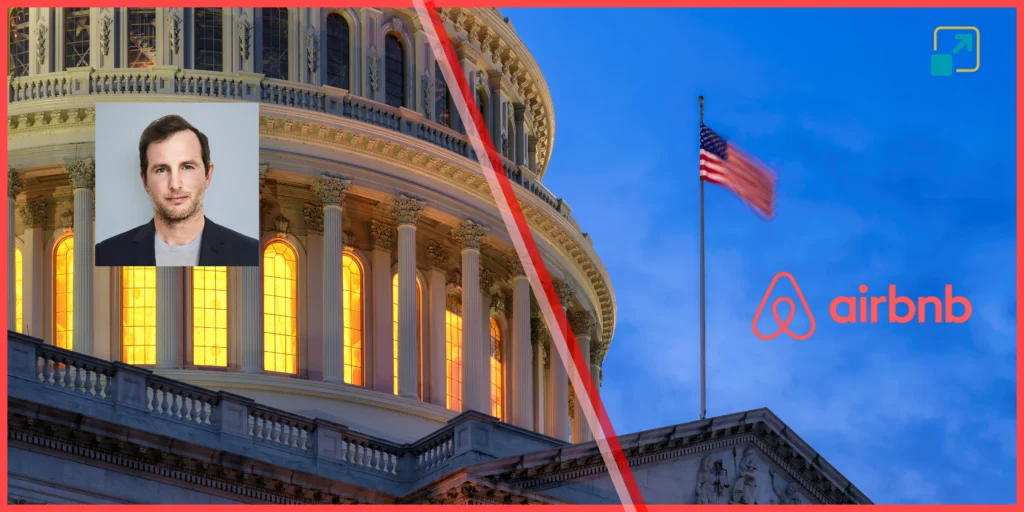Joe Gebbia, co-founder of Airbnb and long-time advocate for design-driven innovation, remains a key figure in the Trump administration’s Department of Government Efficiency (DOGE), even as the department undergoes a macanjor leadership transition following Elon Musk’s departure. Although Gebbia had previously been viewed as a leading candidate to take over Musk’s role, recent reports confirm he will not assume sole leadership of the agency.
Instead, Gebbia is expected to join a “small council of advisers” tasked with steering DOGE’s future direction—an arrangement that reflects both his value to the initiative and his reluctance to be at the center of political controversy. The development also brings renewed attention to the overlap between Gebbia, Airbnb, and high-profile Trump-era government programs.
DOGE After Musk: Council-Led Leadership Gains Momentum
Elon Musk officially stepped down from DOGE in May 2025, concluding a highly visible tenure marked by rapid cost-cutting initiatives and friction with federal agencies. His departure created a leadership vacuum that initially positioned Gebbia as a potential successor.
However, as of June 10–11, multiple sources now confirm that Gebbia has opted not to take on a sole leadership role, citing concerns over the level of scrutiny and politicization that surrounded Musk’s time at DOGE. Instead, a shared leadership model is gaining traction.
The current working plan—still under internal discussion at the White House—involves forming a small advisory council, with Gebbia and investment banker Anthony Armstrong as the most prominent expected members. Armstrong, known for his work with Musk during the Twitter acquisition, would bring financial and operational expertise to the group.
Gebbia’s Continued Government Involvement
While he won’t serve as DOGE’s singular leader, Gebbia remains actively involved in modernization projects, with a primary focus on overhauling the federal retirement system. This area has drawn bipartisan support and is seen as less politically sensitive than some of DOGE’s earlier, more aggressive restructuring efforts.
Gebbia’s approach continues to emphasize digital transformation, user experience, and replacing outdated, paper-based systems with streamlined platforms. His work aligns with his design-forward reputation and his past success in building scalable digital platforms like Airbnb.
Airbnb, the Trump Administration, and Public Perception
Even though Gebbia’s DOGE role is technically independent from Airbnb, his ongoing board membership and public service involvement have led to renewed public discussion about the company’s political associations.
Some Airbnb hosts have expressed discomfort with any perceived connection to the Trump administration, especially in communities affected by earlier DOGE-driven cutbacks. While Airbnb has stated that Gebbia stepped down from executive duties in 2022, calls for transparency and distancing have continued on social media and among activist groups.
These reactions underscore the reputational risks companies face when their leadership intersects—even tangentially—with politically visible government programs. Airbnb, a global brand built on inclusivity and community trust, is now navigating how to respond to this unique situation.
Broader Succession Landscape and DOGE’s Future
Beyond Gebbia and Armstrong, other names—including Russell Vought, director of the White House Office of Management and Budget, and Amy Gleeson, a former digital service professional—are being mentioned as possible contributors to DOGE’s leadership in the coming months.
As of now, the White House has not issued any formal confirmation of DOGE’s future structure. But sources across DOGE and Silicon Valley confirm that a solo-leadership model is no longer under consideration, and Gebbia’s advisory role is all but finalized.
Meanwhile, DOGE continues to be staffed in part by individuals closely tied to Musk’s private companies, preserving continuity in some areas of operations.
Conclusion: A Tech Executive in a Government Hot Seat
Joe Gebbia’s continued presence at DOGE, albeit in a less visible role, reflects the evolving relationship between Silicon Valley leaders and public sector reform. While not a headline appointment, his involvement in shaping the department’s modernization efforts remains influential—and so does the public response.
For Airbnb, Gebbia’s government work has prompted a wave of renewed scrutiny, driven not by company policy but by public perception. The broader takeaway? Even limited links between tech firms and political administrations can shape narratives that last well beyond the boardroom.
As DOGE transitions from Musk-era leadership to a more decentralized structure, the initiative’s next chapter may be defined not by controversy, but by quieter, systemic reforms—and by how key figures like Gebbia navigate the intersection of business, design, and governance.
Thibault Masson is a leading expert in vacation rental revenue management and dynamic pricing strategies. As Head of Product Marketing at PriceLabs and founder of Rental Scale-Up, Thibault empowers hosts and property managers with actionable insights and data-driven solutions. With over a decade managing luxury rentals in Bali and St. Barths, he is a sought-after industry speaker and prolific content creator, making complex topics simple for global audiences.








